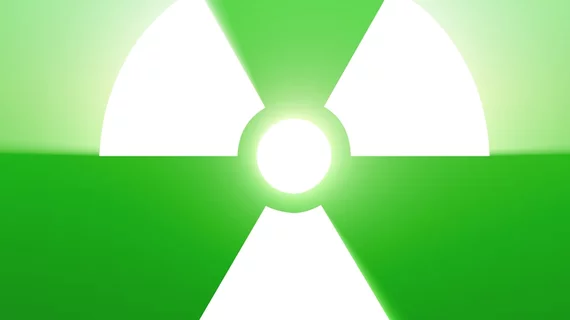Netherlands nuclear reactor has resumed operations after unplanned outage
The high-flux reactor in Petten, the Netherlands, which has been out of service since January, has officially resumed operations.
The HFR was sidelined in mid-January due to a water leak in the cooling system. Since then, there have been widespread concerns about supply shortages of critically needed medical isotopes, such as Mo-99, Tc-99m, Lu-177 and I-131.
In order to resume operations, the facility was required to undergo rigorous inspections, repairs and adaptations for a new water supply. Locating the exact source of the leak took two weeks to complete, further complicating the production and distribution of medical radioisotopes.
Other reactors, including Poland’s research reactor, Maria, stepped up in the wake of supply disruptions to assist in the production of Mo-99, but the most recent statement by the Nuclear Research and Consultancy Group (NRG) indicates that medical isotope production at the HFR in Petten has resumed and supply chains should return to normal very soon.
“Within two weeks, the first medical isotopes for nuclear medicine will be delivered to hospitals,” said Vinod Ramnandanlal, Director of Commerce at NRG|PALLAS. “We are pleased that NRG can once again meet the worldwide demand for medical isotopes.”
The Dutch Authority for Nuclear Safety and Radiation Protection authorized the reactor’s restart on March 9. Following the restart, a power output of 45 megawatts was reached at the facility on March 17.
“This is very good news, medical isotopes are of enormous importance to many patients,” said Andor Glaudemans, chairman of the Dutch Association for Nuclear Medicine. “In the coming month, more than 1.1 million patient doses will be produced, which will be used for the diagnosis and treatment of life-threatening diseases such as cancer and cardiovascular disease.”
More than 30,000 patients per day are treated with medical isotopes that are produced by the high-flux reactor, so its resumptions will undoubtedly come as welcome news for clinicians treating patients in need.
The detailed NRG statement can be viewed here.
Related Radiotracer Isotope Shortage News:
Medical isotope shortage looms as 'unplanned' outage halts Mo-99, Lu-177 production
University's research reactor increases medical isotope production in wake of supply disruption
Texas A&M University to lead isotope R&D trainee program with $2 million grant
University's research reactor increases medical isotope production in wake of supply disruption
One chemistry professor's role in increasing radioisotope production in the U.S.
NorthStar breaks ground on isotope facility, moves toward doubling domestic Mo-99 supply
Isotope update: Target date for resuming production of Mo-99 still unclear
Wisconsin company to begin producing medical isotopes next year
Isotope shortage update: Target restart date for downed reactor has been set
Medical isotope update: Shortage expected to last weeks as nuclear reactor remains sidelined
Nuclear reactor in Poland steps up to address Mo-99 shortage
Medical imaging isotope producer Shine finalizes merger with fusion technology specialist
SHINE gains exclusive license for Lu-177 radioisotope production

